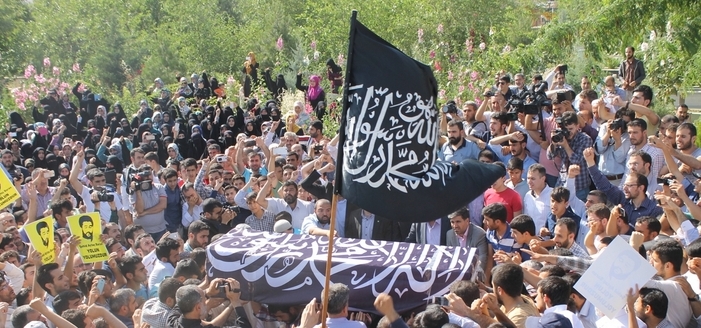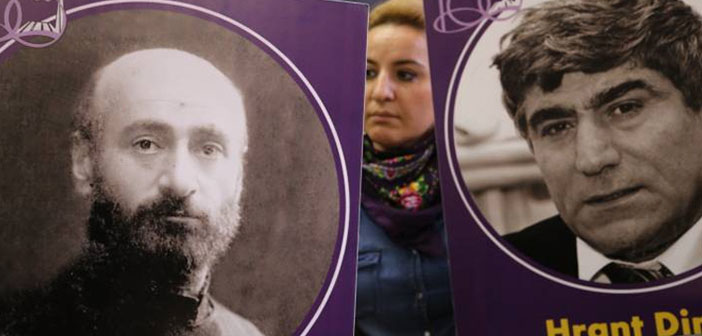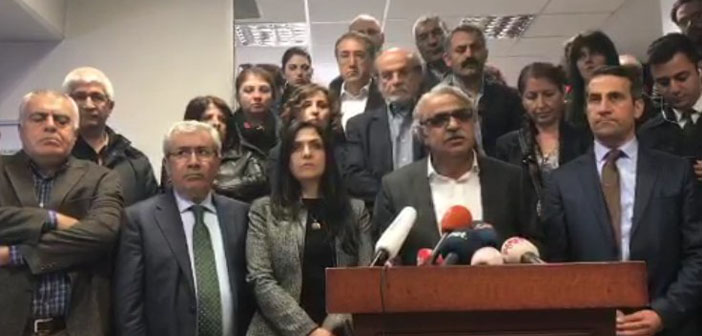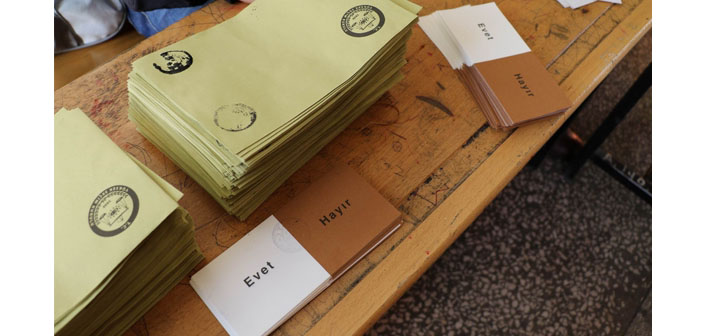The tension in Diyarbakır has increased once again following first the bombings at a HDP rally, and then the murder of 4 people. Helsinki Citizens Assembly Member Nalan Erkem and Mazlumder Diyarbakır Board Member Reha Ruhavioğlu, who were in the commission that visited the city for observations, have recounted the situation in the city. According to eyewitnesses, a jihadist streak has become more prominent in the region for months, and although everyone including the police has been aware of this, no one has acted to prevent the events.
The murder on June 9 of Yeni İhya-Der President Aytaç Baran, known to be an organization close to HÜDAPAR (The Free Cause Party), followed by the murders of HDP members Bayram Özelçi, Emin Ensen and Bayram Dağıtan has increased anxiety in the region that this may spell “a return to the 90s”. Only one of the 14 individuals detained following the murders has been arrested as a murder suspect. On the other hand, O.G., an individual known to be affiliated with ISIS, has been arrested as a perpetrator in the bombing carried out at the HDP rally on June 5; however, no action has been taken as of yet regarding persons determined to have aided O.G. in the bombing.
Last weekend, a commission formed of representatives of workers’ unions, professional organizations and human rights organizations visited Diyarbakır to carry out observations regarding the recent provocative attacks. The commission formed of representatives of KESK (Confederation of Public Workers’ Unions), DİSK (Confederation of Revolutionary Workers’ Unions), TTB (Turkish Medical Association), TMMOB (Union of Chambers of Turkish Engineers and Architects), İHD (Human Rights Association), Mazlumder (Association for Human Rights and Solidarity for the Oppressed), Helsinki Yurttaşlar Derneği, Human Rights Research Association, TİHV-HRFT (Human Rights Foundation of Turkey) and Amnesty International carried out meetings with political parties, human rights organizations and citizens.
“Murders were not committed by agitated youth”
Commission member, lawyer Nalan Erkem from the Helsinki Citizens’ Assembly, told us that the most significant impression of the visit was the anxiety the people of the region felt for the disruption of the peace process, and a return to the 1990s. Erkem explains that in meetings they held, citizens told them that the suspicious attacks remained unsolved: “We were told that in a single night, many bookshops and associations close to the HDP were fired at, and that the police did nothing about the attacks on Hizbullah either. At the funeral of Aytaç Baran, Hizbullah showed off by firing rounds with Kalashnikovs despite police presence. Witnesses also say that there were military panzers in the area where 2 of the 3 HDP members were killed. The account of eyewitnesses reveals that the murders were not committed by agitated youth, but in cold blood by 35-40 year old gunmen, who appeared to know what they were doing.” Erkem says that there are many eyewitnesses of the murder, but that these people have not come forward both because of a lack of trust in the State, and the fear of being targeted by the Hizbullah.
“HÜDAPAR has changed its stance”
So when did the tension that has been fuelled first with the bombing at the HDP rally, and then with unsolved murders, begin? Lawyer Erkem says that peaceful relations continued until the 2014 Local Elections, and that HÜDAPAR especially voiced a discourse in opposition to the government; but that after the local elections, HÜDAPAR grew closer to the AKP and began to act in opposition to the HDP. Erkem adds that the role of the presence of ISIS along the other side of the border cannot be overlooked if the change of mood in the region is to be understood: “Democratic religious civilian society organizations have told us that ISIS’s performance in wars has led to a shift towards jihadism in the Hizbullah base. In meetings with youth close to HÜDAPAR, we saw that some party members had strayed from democratic politics and that within the new dual structure, those who favoured democratic politics now formed a minority.” In other words, it is not possible to explain the events in Diyarbakır within the city or region; and all sides also point to the Middle East and Turkey’s Syria policy.
“Military build-up in homes”
Another allegation that Erkem shares with us displays the danger by any disruption to the solution process may pose. According to information provided by sources close to both the AKP and the HDP, Hizbullah has been arming itself at a tremendous pace especially since the October 6-7 events last year when 50 people were killed. It is stated that there is military build-up in Hizbullah-affiliated homes, and that the arms are being brought in over the Syrian border, or are acquired through hunting store robberies. “In the Şehitlik neighbourhood where the murders were committed, armed groups allegedly patrol the street. Everyone, including the police, knows this, but no one does anything about it. The public wants both sides to abandon provocative statements. There is anxiety that huge massacres will be carried out if the solution process is disrupted,” comments Erkem.
Mazlumder member Ruhavioğlu: Both sides must declare abolition of conflict
Although there is no concrete evidence regarding the link between the rally bombing and the murders, similar questions are posed regarding the issues that remain unsolved. Speaking to Agos, Mazlumder Diyarbakır Board Member Reha Ruhavioğlu states that there is a different plan in play: “We do not know for certain whether this plan is organized by a structure within the State, or another structure. But I do not think everything is going to plan. For instance, the perpetrator in the Aytaç Baran murder must be revealed, we must know whether the perpetrator is for instance a YDG-H member, or someone who infiltrated the organization.”
Ruhavioğlu emphasizes the importance of both sides declaring their will for the abolition of conflict: “That the attacks on the HDP rally would evolve into clashes between the PKK and the Hizbullah was a possibility that caused us anxiety. The reason that possibility still exists is the lack of an agreement between the PKK and the Hizbullah that there will be no actual or verbal aggression between the sides. If such an agreement can be established, then, instead of clashing with each other, they can march to the Police Directorate or the Diyarbakır Governorate to voice their demand for the truth to be unearthed.”





